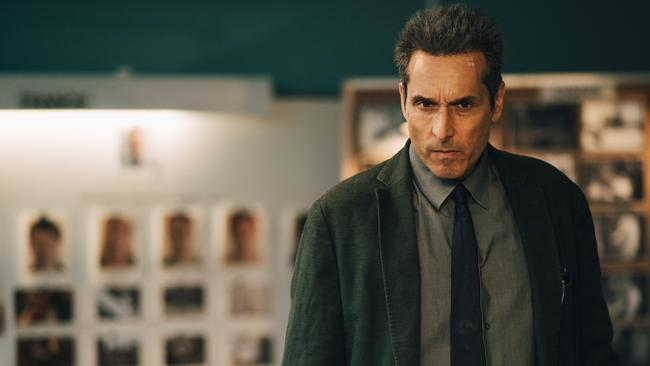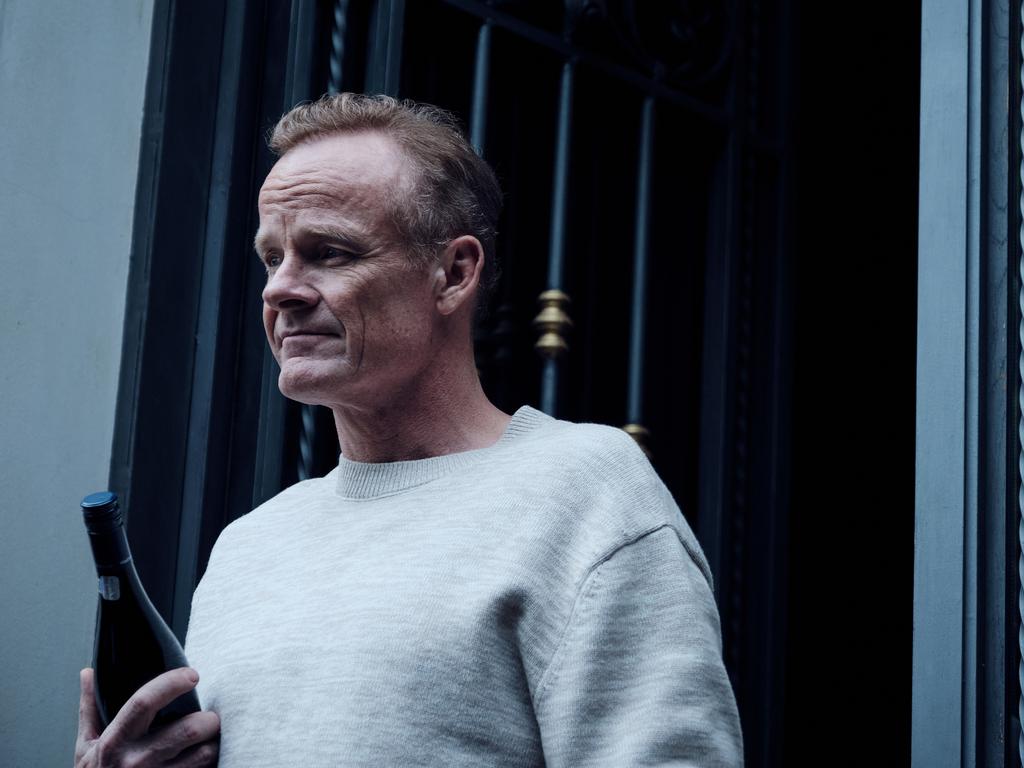Syndrome E, French TV’s latest hit
If you liked Lupin and The Bureau you’ll love this series on SBS, a complex cop thriller with a neurological twist.

French TV continues its big moment, earning not only critical success and prestige but huge audiences in this new streaming age. The days are gone in that country when TV was long seen as a by-product of cinema, a poor cousin, somewhat disdained.
In France, they’re calling it “the New New Wave”, French filmmakers quickly understanding that instead of condensing stories into 90-minute movies they can now tell them over several seasons. (The term was coined by Pascal Breton, the producer of Marseille, Netflix’s first original French language drama.)
And actors, known for their work in cinema, saw that the new cable and streamer-produced shows from companies such as HBO and Netflix were largely dramatically innovative, and full of movie star charisma. These series create plausible and immersive fictional worlds – what the clever New Yorker critic Emily Nussbaum called “shiver-inducing cable TV intoxicants” – and of course, the work is more stable than cinema. Successful shows can run for many seasons.
We’ve devoured the comedy-drama chic of Call My Agent! (Dix Pour Cent), the down and dirty cop-show grit of Spiral (Engrenages), and the even tougher Braquo, with those leather coated cops from the precinct Hauts-de-Seine. Then we discovered the adventures of gentleman thief Assane Diop in Lupin, and the deceptions and betrayals of The Bureau.
The latest is Syndrome E, from Escazal Films (Criminal Games, They Were Ten), the first TV series adapted from international best-selling French thriller author and screenwriter Franck Thilliez. And exciting and confronting it is, too, beautifully directed by Laure de Butler, also responsible for the brilliant La Promisse, that serial killer mystery also acclaimed internationally for its cinematic flair and narrative originality.
The first book of Thilliez’s Sharko and Hennebelle novels, one of Thilliez’s franchises, the adaptation of Syndrome E is from screenwriter Mathieu Missoffe, best known for shows such as Spiral and Black Spot, which follows the lives of a local police department in the small town of Villefranche. And, with his cop drama background, Missoffe has a good feel for the French procedural with its louche detectives, and Thilliez’s blend of science and neurology.
He’s a good fit for the way Thilliez plays with ideas and genres. Black Spot twisted familiar crime show elements with both western conventions and fantasy, adding comic touches. Missoffe is very much a part of an evolving French TV that crosses over from film to TV and the new international audience generated by streamers.
A former computer engineer who specialised in new technologies, Thilliez writes horror and mystery thriller novels, his debut Train d’enfer pour Ange rouge was published in 2003, becoming a bestseller and a successful French movie.
His popular books combine themes of “subliminal suggestion, neuroscience, film technology, police work, violent video games, schizophrenia, computer-oriented worlds, and parent-child relationships”. A lot to get your head around. One reviewer said he wraps his thrillers “in science, wielding biology as other writers utilise dark streets and shady characters.”
Thilliez told Publisher’s Weekly: “When I was younger, I was fascinated by horror movies and thrillers. Watching them, I felt two strange feelings, completely opposite: excitement and fear. I always wondered how movie directors could cause them. When I started thinking about stories, I tried to reproduce this pattern of ambiguous feelings. Basically, I think this is what readers of thrillers are looking for: taking pleasure in being scared.” Thilliez is the fourth most read writer in France in 2020, with more than seven million books sold in his home country and is translated in more than 20 countries.
When Syndrome E, a complex cop thriller that spreads itself across art, politics, science, and religion, was acquired by publisher Viking, translated by Mark Polizzotti, it gained rave reviews and became a bestseller in English-speaking markets.
“This is a crackerjack story that most readers will devour in one sitting,” said Publisher’s Weekly. Crime Fiction Lover said the novel was accomplished, “in its deft characterisation, in its tight plotting, in the way Thilliez generates a sense of dread”. And the respected Kirkus Review said, “This novel boasts distinctive characters you want to spend time with, a lively plot, evocative settings, fun film references and, icing on the cake, an enjoyable offbeat romance.”
US studios, too, saw the potential in Thilliez’s hard-boiled novels, Paramount grabbing rights to Syndrome E back in 2012, holding them for five years before relinquishing them to Escazal Films.
Syndrome E, it should be explained, is a condition that desensitises violence in some men, said to explain mass killings of defenceless people. Think of the group contagion, hyper arousal, and loss of human sympathy, that, with the approval of authorities, have resulted in atrocities such as the Nazi murders, Rwandan genocide or the murderous mayhem of Cambodia’s Pol Pot regime.
If you need to know, British medical authority The Lancet explains it: “A pathophysiological model – ‘cognitive fracture’ – is hypothesised, where hyperaroused orbitofrontal and medial prefrontal cortices tonically inhibit the amygdala and are no longer regulated by visceral and somatic homeostatic controls ordinarily supplied by subcortical systems.”
A big round of applause for Thilliez for taking this on. He says he wrote daily for five months to create Syndrome E. But the research for the “complicated story” was arduous and complex, covering “forensics, cinema, studies about the brain, psychiatry.” The idea for the book was a little accidental, he says, historical rather than personal. He was reading some information about the history of psychology when he came across the story of the Canadian Duplessis orphans, who, he says, “although completely sane, had been placed in psychiatric hospitals in the 1950s for financial gain – to the hospitals.”
It begins with a marvellous sequence that introduces Vincent Elbaz’s jaundiced cop Frank Sharko. (Elbaz is a big star in France possessing a chiselled intensity perfect for Sharko.) It’s really a piece of cinematic grand guignol, a moment of totally unexpected spectacle. A voiceover narration, almost like a police broadcast, tells us that Inspector Sharko “is in pursuit of an individual suspected of being The Strangler”.
The camera viscerally tracks along Parisian streets and high-rise buildings, and without warning two men crash out of a massive glass window high above the street. The camera cuts to Sharko sprawled on the ground, somehow alive. “Looks like you pulled it off, Sharko,” says a teenager in a yellow jacket who stands next to his body.
She turns out to be his daughter, Eugenie, who was killed in a terrorist attack with Sharko’s wife some years earlier, and as the first episode gets underway, she rarely leaves his sight. Sharko is a haunted man. It’s initially distracting but she becomes a kind of taunting presence in his investigations, a constant reminder of loss.
Once Sharko is introduced, we cut to Morocco and the beginnings of a disturbing story of a young boy who is kidnapped after a soccer game, one of a number, it turns out – while we join two young cops in Paris on night patrol. One of them, Detective Lucie Hennebelle, a 35-year-old single mother, played by the luminous Jennifer Decker, receives a mysterious message from a friend: “I think I know what happened now. And it concerns us all”. (Decker is terrific as the tenacious Hennebelle, telling her young daughter at the start that she is “a monster hunter”.)
She persuades her partner to investigate together or at least check in on him. They find him dead, just as a mystery man runs off into the night, chased by Hennebelle’s partner. Her friend, it seems died, while watching an old black and white movie, the projector still running, the images mesmerising the detective, images of a young girl possessing some kind of magnetic power. As her partner returns, Hennebelle turns from the film, blood streaming from her eyes, and shoots him twice.
The haunted Sharko takes over the investigation. “The cop who fired cried tears of blood,” says his boss as she gives him the Hennebelle shooting case. “Just the kind of thing you love”.
It’s very well done, directed with flair by de Butler in close collaboration with her director of photography Benjamin Louet, who also worked with de Butler on La Promisse. The supporting cast is excellent, especially Kool Shen as Captain Virgile di Maria, Sharko’s colleague.
The unusual blending of cop procedural with neurology is intriguing and there’s an eye-opening cliffhanger in the Moroccan story that brings gasps, instantly tying it to the Sharko and Hennebelle investigation. Monsieur Thilliez should be well pleased.
Syndrome E streaming on SBS On Demand.








To join the conversation, please log in. Don't have an account? Register
Join the conversation, you are commenting as Logout